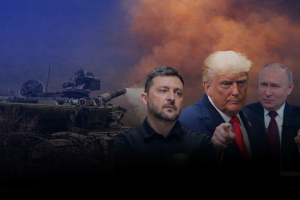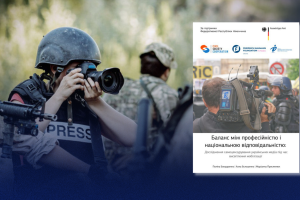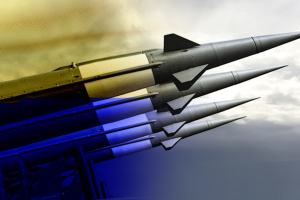This study was conducted by the Ilko Kucheriv Democratic Initiatives Foundation jointly with the Razumkov Center sociological service from July 29 through August 4, 2021 in all regions of Ukraine excluding Crimea and the occupied territories of the Donetsk and Luhansk regions. Exactly 2019 respondents were polled aged 18 years and older. The theoretical sampling error does not exceed 2.3%.
Composition of macro-regions: West – Volyn, Zakarpattya, Ivano-Frankivsk, Lviv, Rivne, Ternopil and Chernivtsi regions; Center – Vinnytsia, Zhytomyr, Kyiv, Kirovohrad, Poltava, Sumy, Khmelnytskyi, Cherkasy and Chernihiv regions, as well as the city of Kyiv; South – Mykolayiv, Odesa, and Kherson; East – Dnipropetrovsk, Donetsk, Zaporizhzhya, Luhansk and Kharkiv regions.
This study was conducted with financial assistance from the MATRA program of the Embassy of the Netherlands in Ukraine.
SYMBOLS OF UKRAINE
- To determine what Ukrainians consider as symbols of Ukraine, respondents were asked open-ended questions about politicians, public figures and artists without response options. Instead, respondents were offered to provide their own answers.
- Regarding an open-ended question about a work of art that best represents Ukraine to the outside world, 9.5% of respondents named Taras Shevchenko's "Kobzar" as such. Another 5.7% consider the National Anthem of Ukraine in this category, and 4.4% named Ukrainian folk songs in general. Volodymyr Ivasyuk's song "Chervona Ruta" was identified as a symbol by 3.4% of Ukrainians. Another 2.4% of respondents named Mykola Gogol's "Taras Bulba", Mykola Leontovych's music masterpiece "Shchedryk" (known globally as “Carol of Bells”) and literary works of Ukrainian classics in general as artistic symbols. Concurrently, more than 40% of respondents found difficulty in answering this question.
- In regards to the artists who have contributed the most to the development of Ukrainian culture since the declaration of independence, respondents most often mention Sviatoslav Vakarchuk and Andriy Kuzmenko (Kuzma Scriabin) – almost 10% of respondents. Placing in third in the number of mentions is Lina Kostenko – 8%. Respondents often named Eurovision winners Ruslana Lyzhychko (5.6%) and Jamala (4.2%). Actor Bohdan Stupka was mentioned by 4.6% of respondents. In addition, more than 3% of respondents also named Soviet time pop star who sang Ukrainian Sofia Rotaru.
- Among the civil society activists who have done the most to develop, protect and represent the interests of the people, respondents named the leader of the People’s Movement of Ukraine (Rukh) Viacheslav Chornovil as first – 8.5%. All other figures were mentioned by less than 3% of the respondents. Among them Heorhiy Gongadze (1%), murdered journalist, founder of popular Internet media “Ukrainska Pravda”.
- Among the listed politicians who have done the most to develop the statehood and sovereignty of Ukraine, presidents placed in the majority: the fifth President of Ukraine Petro Poroshenko and the second President Leonid Kuchma received 10% each. Vyacheslav Chornovil, the leader of the People's Movement of Ukraine (Rukh) (8.5%), Leonid Kravchuk, the first president (6.1%), Volodymyr Zelenskyy, the current president (5.6%), and Viktor Yushchenko, the third president (5.4%) and politician Yulia Tymoshenko (4.6%). Fugitive ex-president Viktor Yanukovych was mentioned by 2% of respondents.
LEADERS AND IMAGE OF “STRONG HAND”
- Social demand for a "strong hand", an authoritarian leader, is paradoxical. The majority of Ukrainians want to see a strong politician who brings order as the head of state. At the same time respondents categorically oppose any potential violations of the law by such strong leader. Thus, we interpet such public opinion rather as popular desire for a greater level of stability and predictability of social and political life than support of authoritarian rule.
- 54% of respondents agree that a few strong leaders can do more for the country than all laws and political debates. A quarter of respondents are of the opposite opinion.
- Almost all the contenders for the position of president are considered “strong” by their supporters: Volodymyr Zelenskyy, Petro Poroshenko, Yulia Tymoshenko and Yuriy Boyko. They are also referred to as the most worthy to hold the office of president. The ratings essentially duplicate the positions of the leaders in a presidential race.
- The most important attributes that respondents named of why such candidates are qualified is they think that these politicians are determined and strong-willed, as well as being able to bring order to the country (42%). Other factors such as sufficient experience of ruling the government (34%), honesty and integrity (33%) and the ability to improve the living standards of the people (31.5%) were often mentioned.
- Significant differences exist in the motivation to support a particular political leader. Among voters of Volodymyr Zelenskyy, the key aspects are that he is honest and man of integrity (35%), capable to bring order to the country (22%), resolute and strong-willed (19.5%), able to fight corruption (18.5%), and is calm and balanced as well as just nice, according to the respondents (17.5%).
- Petro Poroshenko's voter support base slightly differs. Among them, 41% see sufficient experience to run the country; 36% of his voters consider him determined and strong-willed person; 32% believe that he is able to bring order to the country; 26% that he will not allow reversing course of the country to the pre-2014 state. Another 22.5% said that he knew how to develop the national economy. Also, 21.5% believe that he would accelerate meaningful reforms.
- Yulia Tymoshenko's voters value her most because she has experience to rule the country (38%), she is resolute and strong-willed (34%), knows how to develop the national economy (34%), she is able to bring order to the country (32.5 %), she will be able to improve the country’s living standards (30%).
- Yuriy Boyko's voters differ in their motivation from others. They believe that their candidate would be able to end the war eastern Ukraine (44%) and normalize relations with Russia and Belarus (42%), knows how to develop the national economy (34%), has government experience (31%) and is able to install order in the country (30%).
- Overall, a little more than a quarter of respondents believe that the Ukrainians constantly need a "strong hand." About the same share of respondents are less categorical and point to a certain list of situations when it is appropriate for one person to concentrate all power his/her hands. 37% categorically opposed to concentrating all power in the hands of one person, and another 10% could not answer this question. Support for "strong" leaders is slightly higher in older age groups and lower among young people.
- Ukrainians would like to see a strong leader as an attribute of stability rather than a dictatorship. This is substantiated by the fact that 72% of respondents believe that any strong leader should abide by the law and cannot break it.
- Overall, what can be said is that public opinion on the issue of democracy and autocracy in Ukraine is extremely vague. People tend to support ideas that are inherently divergent. As such, expressing the need for the strong leaders and even the concentration of all power in the hands of one person coexists in public opinion with the belief that even a strong leader must strictly abide by the law. From this we can deduce that Ukrainians believe that strong power can and should be based on the principle of the rule of law and an essential feature of a strong leader is the ability to act effectively within the the framework of the law. So if the law is violated, any strong leader risks losing legitimacy and trust in the eyes of most citizens.
LEVEL OF DEMOCRACY
- Despite the desire for a “strong hand”, as mentioned earlier, 54% of respondents believe that democracy is the most desirable type of government for Ukraine. Another 20% believe that under certain circumstances an authoritarian regime can be better than a democratic one, and almost 17% of respondents said that it does not matter to them whether there is a democratic regime in the country. It is worthy to note that the indicators of support for a democracy remain the highest in comparison with the polls before the Revolution of Dignity of 2014.
- Respondents believe Ukraine is predominantly a democratic country, though with certain setbacks. On a scale of 1 to 10, where 1 is a complete dictatorship and 10 a complete democracy, respondents rated Ukraine at 5.6. For comparison: in March 2013, the average score was 4.7. Today, young people assess the degree of democracy in Ukraine to be greater than older generations. Certain regional differences also exist. In the west and in the center, the degree of democracy is estimated at 6 points, in the South at 5.1 points, and in the East at only 4.8 points.
- The majority of respondents (53%) are convinced that people in Ukraine can freely express their political views. A fifth of respondents say the opposite. 22% of respondents found it difficult to answer this question. However, there are certain regional features. In the west, respondents are most optimistic about freedom of political expression, while in the east, 30% of respondents believe that freely expressing their political views in Ukraine is problematic.
- Concerning the future of democracy in Ukraine, public opinion is cautiously optimistic. Over the next 10 years, according to respondents, the degree of democracy and the rule of law in Ukraine will improve – 37% of respondents adhere to this op2inion. Another 21% have the opposite view and believe that the situation will get worse. According to 24% of respondents, nothing will fundamentally change.
PATERNALISM AND INDIVIDUALISM
- Public opinion regarding the dichotomy of “freedom versus prosperity” remains controversial. On the one hand, 39% of respondents say they are prepared to endure certain financial difficulties for the sake of personal freedom and guarantees of observance of all civil rights. On the other hand, 23% have the opposite view. In addition 38% are undecided on the matter. Sociological observations over the past 15 years have shown that the choice between freedom and prosperity remains derived from the public’s assessment of the current economic and political situation. Interestingly, in periods of relative economic stability and development, there is an inclination to become inured toward the value of well-being, while amid a crises and after one, Ukrainians begin to appreciate their own freedom from the state.
- Public opinion somewhat differs in ascertaining the role of the state in providing citizens with everything they need. Nevertheless, some ambiguity persists. 54% of respondents believe that the state should provide people an equal playing field in life, and then the individual is responsible for how they use these opportunities. On the contrary, 38% believe that the state should fully be responsible for providing everyone with everything they need. Another 8% were undecided.
- Respondents were more categorical toward the question of whether the majority of the public will be able to live without governmental welfare. Only 23.5% believe that the majority of the population is able to live without governmental welfare, while 65% are convinced that the majority of the public will not be able to do so.
- Ukrainians do not hold a single position regarding the dichotomy of stability and the defense of their rights. Thus, when asked what is better: to endure financial difficulties in order to maintain order, peace and tranquility in the country, or if living conditions significantly deteriorate and then take to the streets in protest, 39% said that order and peace are worth of tolerating hardships. Another 42.5% said that active protests are needed against the significant deterioration of living conditions. An additional 18.5% were undecided.
IDENTIFICATION AND CITIZENSHIP
- An absolute majority of respondents (72%) are rather or very proud of the Ukrainian citizenship. Only 18.5% said they were not rather not or at all proud of this fact. In general, over the last 19 years, a steady upward trend has been observed in the number of those who are proud or very proud of being Ukrainian citizens.
- Regarding identification, 59% of respondent identify themselves primarily as citizens of Ukraine. Identification with a place of dwelling is also relatively common – 19%. Another 11% primarily identify with residents of the region in which they live.
- In the opinion of respondents, belief in a better future most often unites people in Ukrainian society (36%). The strength of this factor can be underscored by the fact that in the second place among the unifying factors are common life hardships (29.5%). Also significant are family and social feelings (27%), patriotic feelings (25.5%), as well as dissatisfaction with the authorities (22%) and the desire to overcome life’s hardships together (22%). Only 8% said that Ukrainians have nothing in common.
SUCCESSES, FAILURES AND THE PATH TOWARD PROSPERITY
- Despite supporting independence, respondents are still quite pessimistic about the events that have transpired in Ukraine since independence. Eighteen percent of respondents believe that there were more positive events, 29% believe that there was more negative events, and 46% say that the negative and positive events were approximately equal. Still, over time, there has been an unstable trend towards an increase in the share of respondents who say that, in general, there has been more positive events since independence. Also, among the youth there is a much larger share of respondents who see more positive events during the period of independence than among the older generation.
- Relatively successful areas where transformations have taken place since the declaration of independence have been to ensure equality between men and women, the promotion of freedom of speech, the formation of the Ukrainian nation, the equality of national minorities, democracy building, civil society and defense capabilities.
- Ukraine has been the least successful in combating corruption, the formation of a fair judiciary, the fight against crime and establishment of social justice.
- Responding to an open question without pre-defined options, Ukrainians named corruption as the biggest obstacle to Ukraine's development – 38.5% of respondents. The second significant obstacle is the war – more than 18%. Respondents named governmental incompetence – 5.9%, the oligarchs – 5.7% and Ukrainians themselves – 4.8%.
The majority of respondents (69%) think that Ukraine is able to overcome its existing problems and difficulties, but the majority of them believe that they can only be overcome in the longer term – nearly half of all respondents. An additional fifth of respondents believe that Ukraine is generally unable to overcome its existing difficulties and problems








